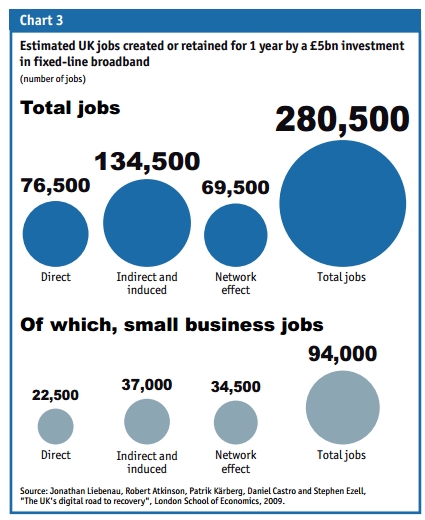Benefits of UK super-fast broadband 'may have been overstated'

The promised benefits to the UK economy of super-fast connectivity may have been exaggerated, according to a new report.
While the study, carried out by the Economist Intelligence Unit and sponsored by Huawei, acknowledges there are advantages to rolling out super-fast connectivity, it also suggests that projections of the benefits such services (including fibre broadband or mobile 4G) can bring are overly optimistic, and in some cases could be achieved by the UK's existing comms infrastructure.

"While the gains from significantly faster connectivity will indeed be sizeable over time, a good dose of reality is also in order. Existing networks are capable of delivering many of the services anticipated over the next few years," the report said.
The report recognises that super-fast connectivity will bring a short-term boost to jobs in some sectors as the engineering work to extend the networks continues, but suggests that longer-term, indirect impact on job growth remains intangible.
"If the British government keeps to its stated ambitions [in regard to super-fast broadband], much of the UK will have access to speeds well in excess of 24Mbps — almost three times the average of today — by 2015," the report says. "Implementing [super-fast broadband] will act as a short-term stimulus, providing jobs and much-needed economic activity... The longer-term, indirect impact on job growth is more difficult to project. Creation of jobs in some industries and regions may very well be partly offset by job losses elsewhere, for example."
The report also says that the anticipated benefits that super-fast connectivity could bring to healthcare, such as telemedicine and remote diagnosis, are realistic but would require "wider reforms of the health system itself before the benefits can be realised".
The real stumbling block to gaining economic benefits from super-fast connectivity is a lack of digitally skilled workers — a problem that will not be fixed by the introduction of faster download and upload speeds, according to the report.
"What too often blocks progress is a shortage of suitable digital skills, institutional resistance to change, unreformed processes and a lack of pervasive basic broadband access, among other things. Deploying super-fast networks will not by itself resolve these problems," the EIC report said.